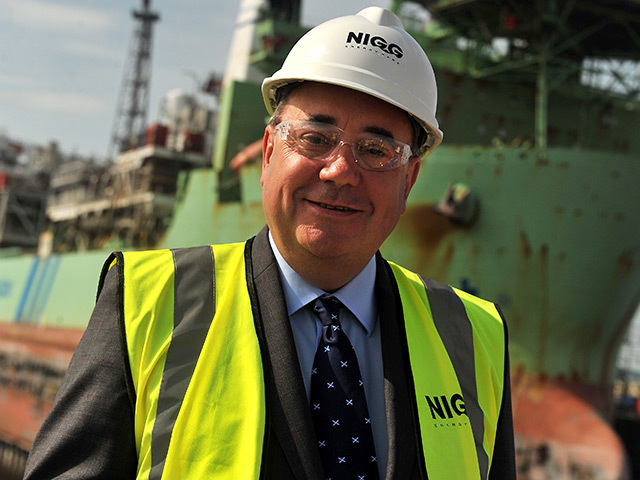
I’ve avoided getting involved to date in the arguments about future oil revenues if Scotland votes for independence next year and am still reluctant to do so.
The standard of economic analysis on the subject has been mixed but even the best work has been misused or misrepresented by the politicians on both sides of the divide. There seems little point in trying to make a sensible contribution in the present climate.
However, like Dick Winchester and Brian Wilson in their columns, I am finally compelled to make some observations.
Just lately there have been two reports on the subject – the first from the UK’s Office for Budget Responsibility (OBR) and the second from Scottish Enterprise.
The OBR report reduced its previous forecasts of UK oil revenues by about 20%, which was immediately acclaimed by Alistair Darling, Danny Alexander and other politicians against independence.
A few days later, First Minister Alex Salmond responded with a report from Scottish Enterprise purportedly rubbishing the OBR forecasts.
I believe that any competent energy economist will be depressed by both the quality of these reports and the politicians’ misrepresentation of their conclusions.
Forecasting is difficult but nevertheless essential in the oil and gas industry. There are four main variables in the debate about future oil revenues: production, prices, costs and taxes. All need to be considered with as much rigour and objectivity as possible, but the recent reports do not do that.
Firstly, UKCS oil and gas production has declined for many years and will continue to do so because the reserves are finite and diminishing. There can be legitimate debates about the rates of decline but nobody in their right mind should disagree with that basic conclusion.
It is probable that there will be short-term increases over the next few years because of the current investments in new field developments, notably West of Shetland, but the long-term trend is undoubtedly downwards.
However, the new fields such as Rosebank, Lochnagar, Clair, Mariner and Bressay should still be producing in 2035, so the industry will not disappear for many years.
Secondly, prices. I am optimistic about prices (from the producer’s perspective but not the consumer’s). I expect oil prices to average at least $100 per barrel for the foreseeable future.
Professor Alex Kemp, my ex-colleague and landlord in Aberdeen, uses lower price forecasts in his scenarios but I think he is too pessimistic. That is probably a consequence of being a Dons supporter.
Nevertheless, it is sensible in all these discussions to examine the implications of alternative price scenarios. The Office for Budget Responsibility (OBR) report gives price forecasts to 2045, which seems a ludicrous and unnecessary timescale to me.
Thirdly, we have to make assumptions about costs, both development and operating. Most people in the industry expect those to continue to rise in the North Sea, because of the declining resource base and the remote locations of recent discoveries.
Technological improvements have made huge differences in recent years, as exemplified by the new development of heavy oil fields such Mariner and Bressay (the latter was discovered as long ago as 1977), but the general trend in costs is surely upwards.
The obvious implication is that the average profitability of future UKCS fields will be less than at the present time. Nevertheless, fields that were previously deemed non-commercial are now being developed.
Fourthly and finally, there is the tax regime. The industry has been regarded as a “cash cow” by successive governments and the tax increases in the 2012 Budget were widely condemned.
They have been largely reversed and the current high level of development activity is testament to the stupidity of that budget.
In addition, the Government has agreed tax concessions for the decommissioning of fields such as Brent and Murchison. That will be an increasingly important market over the next decade but with commensurate implications for tax revenues.
The clear implication is that future tax revenues will decline unless there is a big and sustained rise in prices, which is very unlikely.
UK oil and gas production will continue to fall, albeit with year-to-year fluctuations; operating and development costs will rise; and oil prices will probably remain around $100 per barrel.
The size of the decline in tax revenues – whether to the UK or Scottish Governments – is a legitimate topic of opinion and debate, and an important issue in the debate about Scottish independence.
Unfortunately, the possibility of a sensible discussion is being hijacked by political point scoring, not only by politicians but also by civil servants in OBR and Scottish Enterprise.
Tony Mackay is the MD of economists Mackay Consultants
Recommended for you
